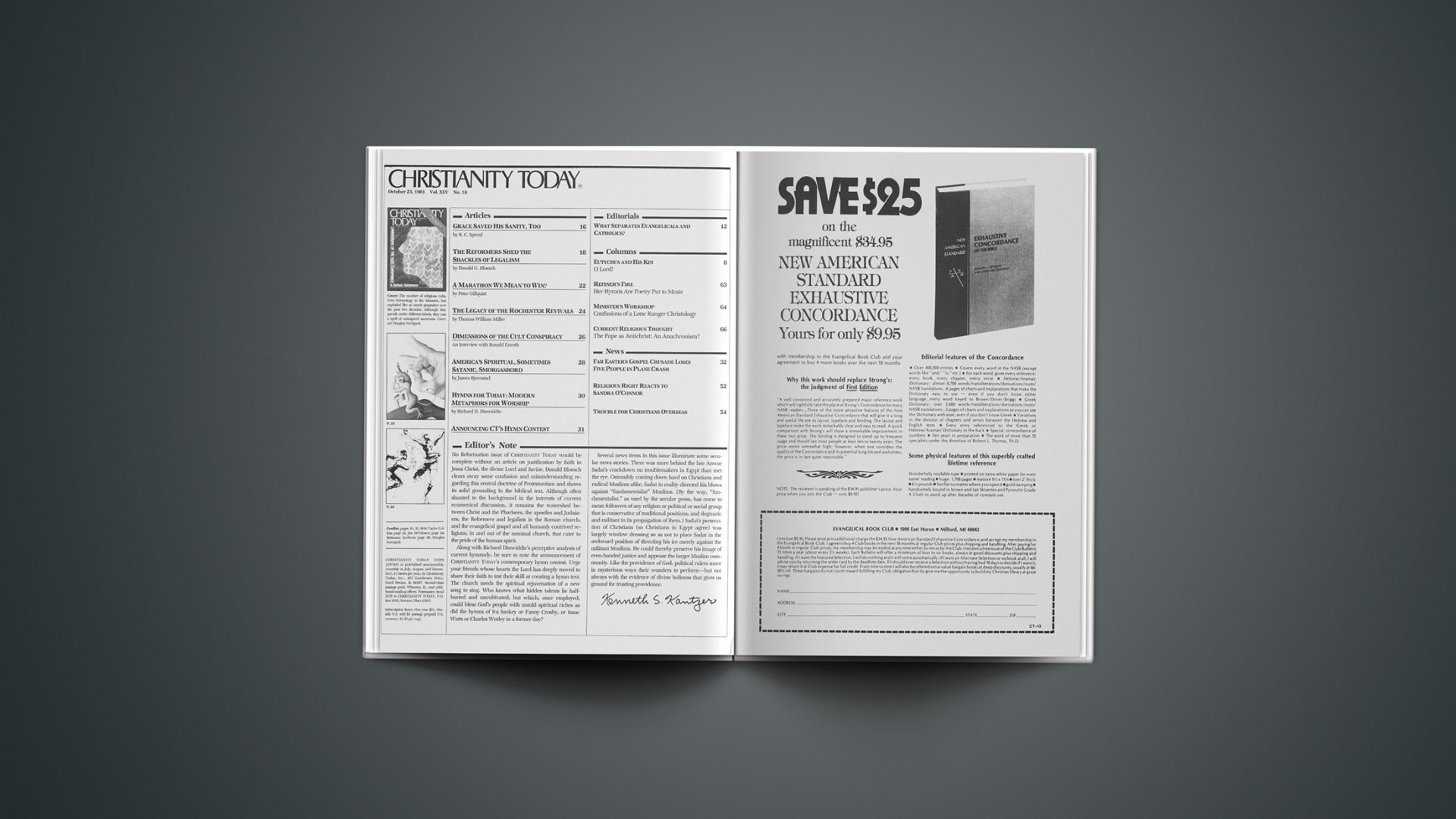No Reformation issue of CHRISTIANITY TODAY would be complete without an article on justification by faith in Jesus Christ, the divine Lord and Savior. Donald Bloesch clears away some confusion and misunderstanding regarding this central doctrine of Protestantism and shows its solid grounding in the biblical text. Although often shunted to the background in the interests of current ecumenical discussion, it remains the watershed between Christ and the Pharisees, the apostles and Judaizers, the Reformers and legalists in the Roman church, and the evangelical gospel and all humanly contrived religions, in and out of the nominal church, that cater to the pride of the human spirit.
Along with Richard Dinwiddie’s perceptive analysis of current hymnody, be sure to note the announcement of CHRISTIANITY TODAY’s contemporary hymn contest. Urge your friends whose hearts the Lord has deeply moved to share their faith to test their skill at creating a hymn text. The church needs the spiritual rejuvenation of a new song to sing. Who knows what hidden talents lie half-buried and uncultivated, but which, once employed, could bless God’s people with untold spiritual riches as did the hymns of Ira Sankey or Fanny Crosby, or Isaac Watts or Charles Wesley in a former day?
Several news items in this issue illuminate some secular news stories. There was more behind the late Anwar Sadat’s crackdown on troublemakers in Egypt than met the eye. Ostensibly coming down hard on Christians and radical Muslims alike, Sadat in reality directed his blows against “fundamentalist” Muslims. (By the way, “fundamentalist,” as used by the secular press, has come to mean followers of any religion or political or social group that is conservative of traditional positions, and dogmatic and militant in its propagation of them.) Sadat’s persecution of Christians (so Christians in Egypt agree) was largely window dressing so as not to place Sadat in the awkward position of directing his ire merely against the militant Muslims. He could thereby preserve his image of even-handed justice and appease the larger Muslim community. Like the providence of God, political rulers move in mysterious ways their wonders to perform—but not always with the evidence of divine holiness that gives us ground for trusting providence.










